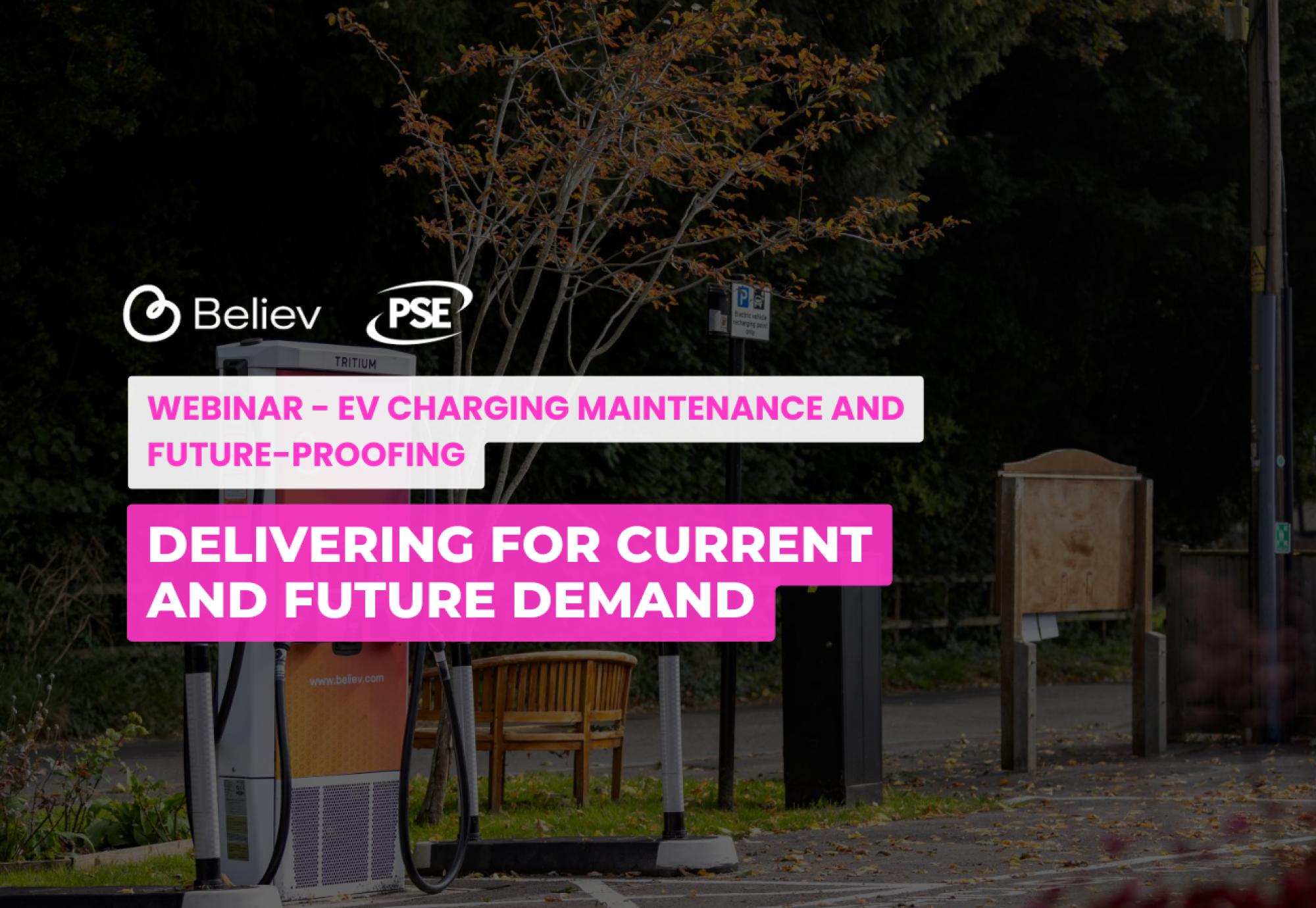As electric vehicles become more popular, and necessary in the ambition to reduce carbon emissions across transport, the right infrastructure must be in place.
One of the key challenges facing the uptake of more EVs is the anxiety that surrounds where EV owners might charge their vehicles. This issue is more pressing when you consider the millions of homes, as well as other road infrastructure, that has been constructed prior to the need for electric vehicle charging.
In this webinar, Public Sector Executive and Believ delved into the pressing topic of electric vehicle (EV) charging infrastructure, a vital component in the transition to sustainable transport. With the rise in EV adoption, local councils are at the forefront of developing and maintaining charging networks that cater to the growing demand.
The host, Charlie Allen (Head of Public Sector Partnerships at Believ), was joined by an experienced panel from various local councils, including Swindon, Suffolk, and Wakefield. Together, they shared their insights on the challenges they face, from planning and installation to maintenance and future-proofing. The discussion highlighted the importance of understanding different ownership models and the implications they have on the overall efficiency of the charging infrastructure.
Jack Adams, EV Infrastructure Project Manager at Wakefield Council, discussed their ambitious plans to decarbonise their fleet by 2030, underlining the urgency of implementing effective charging solutions. Bryony Chetwode, Swindon Borough Council’s Design Engineer for Public Transport, shared the complexities of managing a diverse urban geography, where the modal shift to EVs presents unique challenges in terms of infrastructure.
Amy Rushton, Senior Project Manager at Suffolk County Council, elaborated on their Plug In Suffolk initiative, which aims to expand the public charging network, particularly in rural areas. The conversation also touched on the significance of community engagement and education in promoting EV adoption, as well as the need for robust contract management to ensure that charging points are well-maintained and future-proofed.
As the discussion unfolded, the panel also addressed audience questions, providing valuable insights into the practicalities of EV charging, including the importance of data collection for understanding usage patterns and optimising service delivery.
This is a must-watch for anyone interested in the future of transport and the role of local authorities in shaping a sustainable charging network. Join us as we explore the intersection of technology, policy, and community in the journey towards a greener future. In order to get all the insight from the panel, watch on demand here.



















